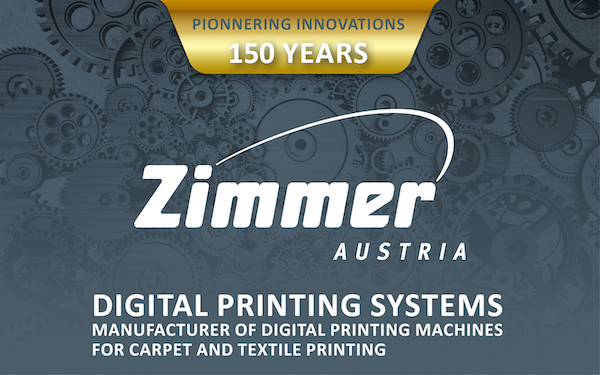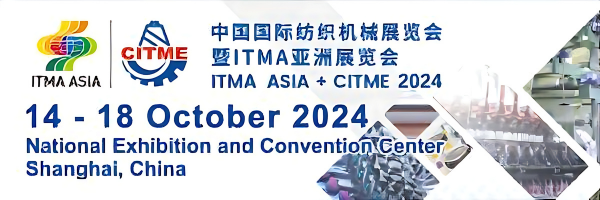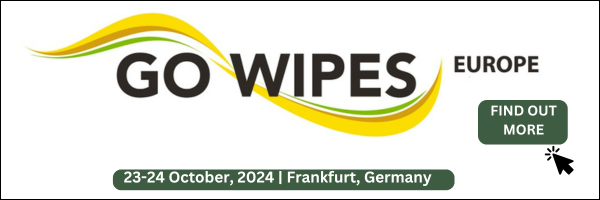Welcome to this insightful interview with Dr. Harald Weber, Managing Director of the VDMA Textile Machinery Association in Germany. Dr. Weber offers us a comprehensive view of the textile machinery sector’s dynamics, particularly in the context of its engagement with the ITM Istanbul exhibition. With his wealth of expertise, he sheds light on the significance of this event, the industry’s key trends, and the challenges and opportunities both at home and abroad.
Bridging Textile Innovation Across Regions
It should not be forgotten that ITM not only attracts visitors from Turkey, but also from the Middle East, Central Asia and North Africa. Turkey’s proximity to the European Union and its fully integrated textile value chain also make it interesting in terms of the EU’s strategy for sustainable and circular textiles and the increasing importance of recycling in the future.
1. Can you share a list of German companies participating in ITM and their respective fields of activity?
Roundabout 90 exhibitors from Germany will exhibit at the fair, the majority of them members of VDMA. Not to forget the companies that will be represented in Istanbul via agents. They cover nearly all different machinery chapters with a focus on spinning, nonwovens, weaving, knitting, warp knitting and finishing.
2. Why is ITM Istanbul considered an important exhibition for the textile machinery sector?
For the textile machinery manufacturers organised in the VDMA, Turkey is a major trading partner. Measured by exports, Turkey ranks second among the foreign markets, with German textile machinery and accessories exports in 2023 amounting to a value of roundabout 350 million Euros.
3. The Middle East and Africa hold great potential for the present and future of textile production. How do you assess the pros and cons of the MEA region in the textile production sector?
The Middle East and North Africa are at the doorstep of Europe. This gives textile producers in this region a powerful geographic advantage over Asian sourcing destinations. The textile companies in the region have a deep experience and know-how in making the highest quality textile and apparel for leading markets of Europe and employs a young, dynamic, and well-educated workforce. Of course, not everything is perfect. The high level of inflation in Turkey, for example, is a major obstacle to real growth and to higher real incomes. But these are problems that cannot be solved by the textile industry or mechanical engineering.
4. What are some of the key trends currently shaping the textile machinery sector in Germany?
In technological terms, significant trends are digitalization and automation. These themes have been present for some time but will be central to meeting the challenges for many years to come. Another trend that has been around for a while, too is sustainability. Today it is much more than a buzzword: Efficiency in energy, raw materials or water as well as recycling are not feel-good issues but have a real economic and social background.
5. How does the association support innovation and technological advancements within the industry?
Just one example worth mentioning among others are the working groups on digitalization which have the goal to facilitate the exchange of data between machines and superordinated systems. One of them is looking at the digital product passport and how to enable this from machine side.
6. Could you discuss the impact of digitalization on the textile machinery industry and the efforts to embrace Industry 4.0 principles?
Digitalization is driven by customer and partner requirements on the one hand and government regulation on the other. The EU strategy for sustainable and circular textiles and the associated digital product passport, require a corresponding level of digitalisation.
But at the same time, digitalization helps to meet the sustainability requirements of customers and partners, for example by improving supply chain transparency or resource calculation. To remain competitive and produce efficiently and flexibly, companies can no longer do without digital technologies. Digitalization offers solutions to many of the challenges the entire industry and supply chain are currently facing.
7. What are the main challenges facing German textile machinery manufacturers today, both domestically and internationally?
A major challenge is the geopolitical uncertainty. The textile machinery industry has benefited from free trade more than almost any other sector in recent decades. Things we took for certain in international politics are disappearing. Protectionism is on the rise. The conflict between China and the USA will continue and with it the de-risking efforts of many companies in the value chains.
Increasing regulations i.e. from the European Commission is a danger for the international competitiveness of European machinery manufacturers. It is important to maintain a level playing field in international competition so that increasing regulations do not have a negative impact on European manufacturers.
Challenges in Germany itself are ever increasing bureaucracy and the shortage of labour. VDMA is active with initiatives and campaigns to promote the machinery industry as an attractive employer among young people.
Conclusion
In conclusion, Dr. Harald Weber insights have underscored the pivotal role of ITM Istanbul in facilitating trade and collaboration within the textile machinery sector. From the challenges posed by geopolitical uncertainties to the transformative impact of digitalization and sustainability initiatives, the industry continues to evolve dynamically. With proactive measures such as embracing Industry 4.0 principles and addressing regulatory concerns, German manufacturers are poised to navigate the complexities of the global market while driving innovation and sustainable growth.

















